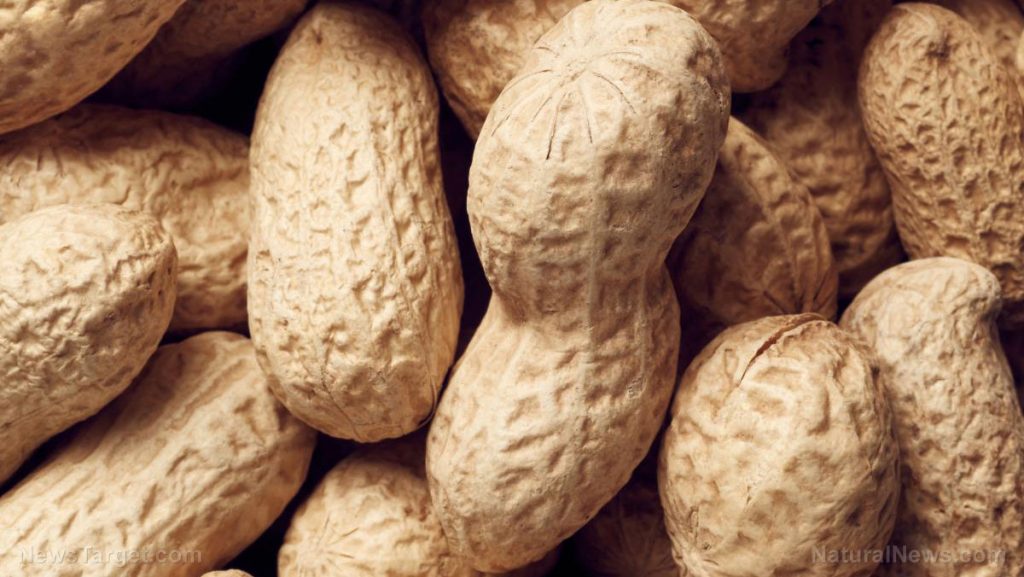Allergic to peanuts? Probiotics found to be effective at ending the threat – naturally


Due to the growing number of genetically modified foods and use of pesticides, more people – especially children – are developing allergies to different types of food. Among these types, peanut allergy is one of the most prevalent cases across the U.S.
More than three million Americans are reportedly suffering from peanut allergy. It is a scary number since this case of hypersensitivity is the leading cause of anaphylaxis, which is a fatal allergic reaction. Furthermore, peanut allergy is at the top of the list of food allergies that can lead to death.
On the brighter side of things, a study conducted at the University of Melbourne suggests that probiotics are the solution to put an end to this problem. According to the research, those who take probiotics and peanut oral immunotherapy (PPOIT) have had their peanut allergies suppressed.
The randomized, double-blind study involved 48 children with peanut allergies who were divided into two groups. One group received PPOIT while the other group was given placebo. In the period of 18 months, both groups were gradually given higher amounts of peanut protein.
After the experiment, 82 percent of the PPOIT group became tolerant to peanuts while only four percent of the placebo group had the same result.
To see how long the effects of PPOIT will last, the same group of researchers did a follow-up study on all participants that tested tolerant to peanuts. Through skin prick tests and other assessments, it appeared that the body sustained the tolerance.
The research has proven that high intake of probiotics can help the body deal with food allergies. It gives extra immune system boost and aids in keeping the body strong enough to handle triggering substances. Nevertheless, it is still best to avoid eating foods that can trigger any allergy.
The power of the elements: Discover Colloidal Silver Mouthwash with quality, natural ingredients like Sangre de Drago sap, black walnut hulls, menthol crystals and more. Zero artificial sweeteners, colors or alcohol. Learn more at the Health Ranger Store and help support this news site.
Symptoms of peanut allergy
Hypersensitivity to peanuts is a very serious case, therefore, it is important to be aware of the signs that a person might be having an allergy attack, such as the following:
- Itchy skin
- Itchy or tingling sensation in or around the mouth
- Nausea
- Runny or congested nose
- Anaphylaxis (Difficulty in breathing which can lead to shock)
List of foods to avoid when you have peanut allergy
Check out this list of food people allergic to peanuts should avoid.
- Arachis oil (another name for peanut oil)
- Artificial nuts
- Beer nuts
- Cold-pressed, expelled or extruded peanut oil
- Goobers
- Ground nuts
- Lupin
- Mandelonas (peanuts soaked in almond flavoring)
- Mixed nuts
- Monkey nuts
- Nut meat
- Nut pieces
- Peanut butter
- Peanut flour
- Peanut protein hydrolysate
Although an allergic person may be aware of the foods to avoid, accidental ingestion or exposure to peanuts is still possible. Furthermore, there are other foods that appear to be harmless but include nuts in the ingredients. It’s best to double check or ask the cook/manufacturer before consuming anything you suspect may have nuts.
Here are other sources which may contain peanuts:
- African, Asian and Mexican restaurant food – even if you order a peanut-free dish, there is high risk of cross-contact
- Alternative nut butters, such as soy nut butter or sunflower seed butter
- Candy
- Chili
- Egg rolls
- Enchilada sauce
- Glazes and marinades
- Ice creams
- Marzipan
- Nougat
- Pancakes
- Pet food
- Sauces such as chili sauce, hot sauce, pesto, gravy, mole sauce and salad dressing
- Specialty pizzas
- Sunflower seeds (which are often produced on equipment shared with peanuts)
- Sweets such as pudding, cookies, baked goods, pies and hot chocolate
- Vegetarian food products, especially those advertised as meat substitutes
Stay updated on the latest studies about food allergies and other discoveries by visiting Discoveries today.
Sources included:
NaturalHealth365
TheLancet
ACAAI.org
FoodAllergy.org







